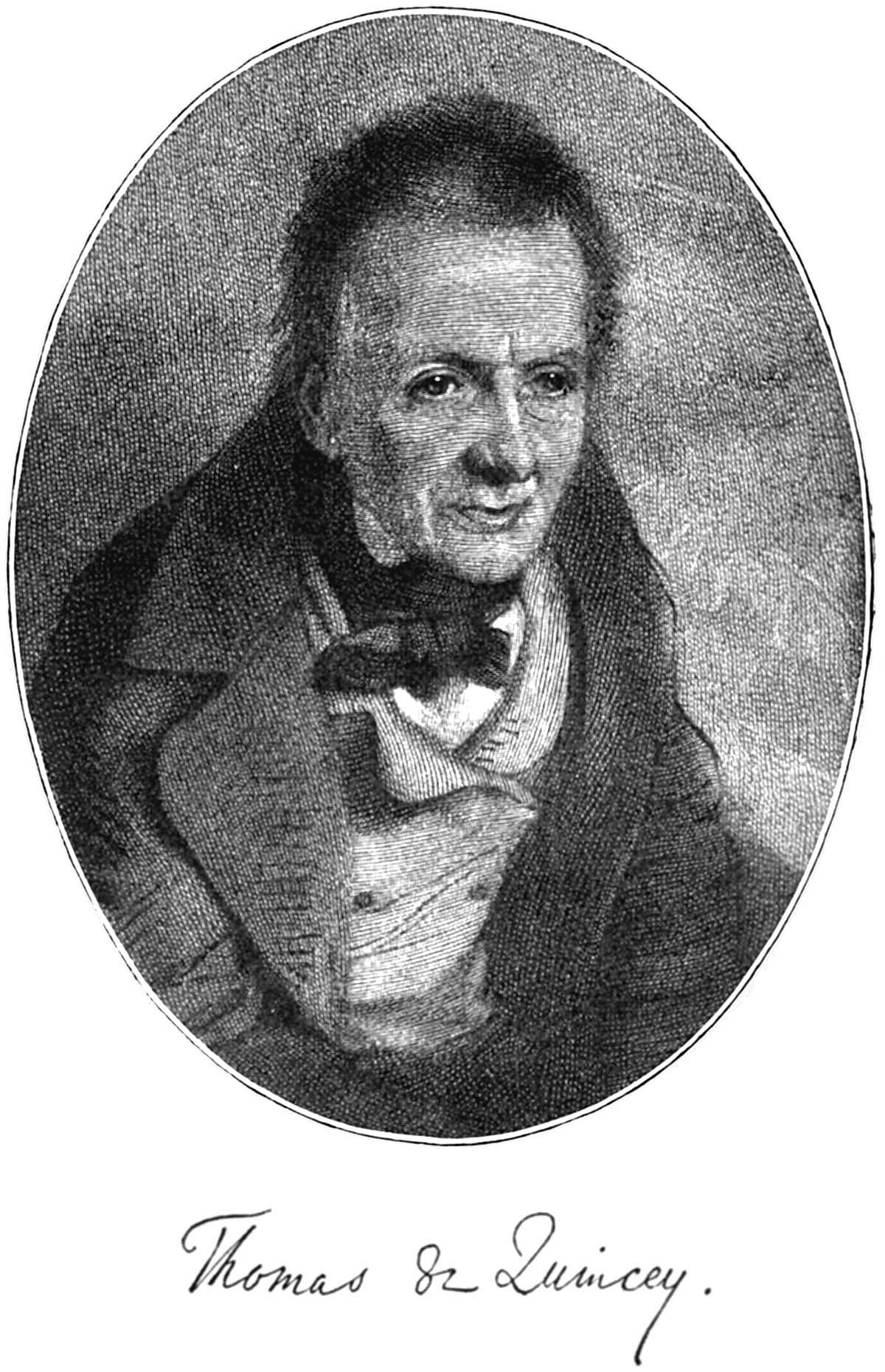“Thou hast the keys of Paradise, oh just, subtle, and mighty opium!”
Pt. II.
Confessions of an English Opium-Eater (1822-1856)
Thomas de Quincey fue un periodista, crítico y escritor británico del Romanticismo. Sus escritores contemporáneos a menudo le aclamaron por su afán de acortar palabras para simplificar la lengua inglesa.

“Thou hast the keys of Paradise, oh just, subtle, and mighty opium!”
Pt. II.
Confessions of an English Opium-Eater (1822-1856)
Pt. I.
Confessions of an English Opium-Eater (1822-1856)
"A Second Paper on Murder Considered as One of the Fine Arts" (1839). Source: Thomas de Quincy. On Murder (Oxford: Oxford UP, 2006), 84
“The burden of the incommunicable.”
Pt. I.
Confessions of an English Opium-Eater (1822-1856)
“Everlasting farewells! and again, and yet again reverberated—everlasting farewells!”
Pt. III.
Confessions of an English Opium-Eater (1822-1856)
“A promise is binding in the inverse ratio of the numbers to whom it is made.”
Appendix.
Confessions of an English Opium-Eater (1822-1856)
Pt. I.
Confessions of an English Opium-Eater (1822-1856)
Pt. I.
Confessions of an English Opium-Eater (1822-1856)
Pt. II, Recalling the day in 1804 when he first took opium.
Confessions of an English Opium-Eater (1822-1856)
Confessions of an English Opium-Eater (1822-1856)
Pt. I.
Confessions of an English Opium-Eater (1822-1856)
“In many walks of life, a conscience is a more expensive encumbrance than a wife or a carriage.”
Confessions of an English Opium-Eater (1822-1856)